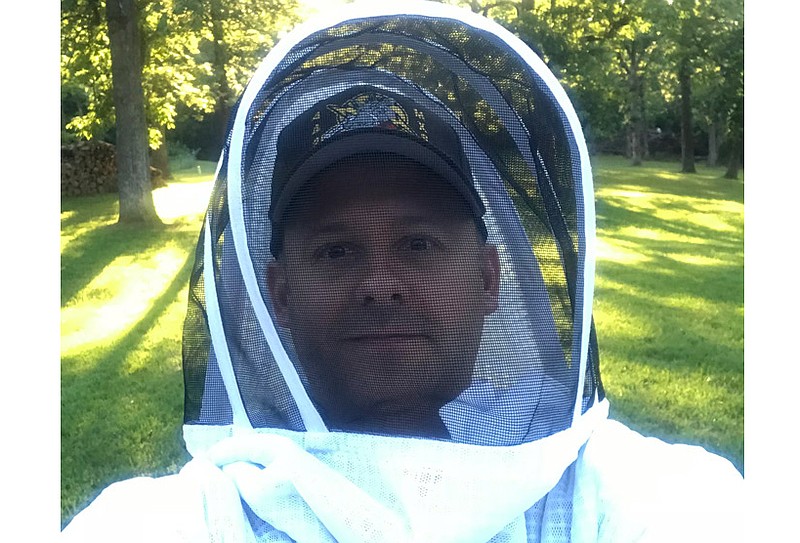The buzz around an amateur beekeeping group is building in Mid-Missouri.
The Show Me Beekeepers are seeking new members to join their hive, which meets monthly at the Cole County Extension office. The group is free to join and brings together new and veteran beekeepers to listen to expert speakers, share knowledge and build enthusiasm for a hobby that helps promote plant pollination, produce sweet honey and enjoy a fascinating insect.
Show Me Beekeepers director and proverbial queen bee Debra Maier, of Brazito, said the group began in August 2017 as a handful of area beekeepers who decided to form their own collective after traveling to associations in places like Columbia to learn more about their hobby. They have since grown to more than 60 members and have been recognized by the Missouri State Beekeepers Association as an official beekeepers organization of the West Central Region.
Show Me Beekeepers meet 6:30-8 p.m. the second Thursday of every month at the Cole County Extension Office, 2436 Tanner Bridge Road in Jefferson City. The last meeting's keynote speaker, Valerie Duever, of honey-producing Jim 'n' I Farms in Auxvasse, offered a presentation of the history of beekeeping, best practices for beginners and other lessons. The next meeting will focus on the state association and annual conference.
Maier said anyone interested in getting into the hobby should attend at least one meeting and do thorough research before obtaining a hive. She hopes newbies will find worthwhile mentors among more experienced beekeepers. Members of area 4-H groups are encouraged to attend if they would like to participate in beekeeping projects.
"I would like to see more mentors come up and be available to help out the people in their area who are just starting out," Maier said.
Gail Severance, of Lohman, is a five-year beekeeper and co-owner of Hard Wood Hill Farms. She said her goals for the group focus on educating the public and building appreciation for this important species. Her eight hives produced 70 pounds of honey last year, and she hopes to increase yields this year. According to the National Honey Board, it takes thousands of bees visiting 2 million flowers to produce one pound of honey, which the average person consumes in about a year.
Honeybees are responsible for about 80 percent of crop pollination, which amounts to about $15 billion in annual commercial value, according to worldwide conservation organization the Nature Conservancy. The number of honeybee colonies has decreased from 4 million to 2.5 million in the course of the past four decades, while the demand for pollination services is increasing across agricultural operations throughout the nation. There have been many causes attributed to this decline, from the loss of habitat to pesticide usage, diseases, mite infestations and the mysterious Colony Collapse Disorder.
Maier - a beekeeper of four years and graduate of the MU Extension Master Pollinator Stewardship program - said it is difficult to determine what could have depleted populations in individual areas, which makes it all the more important for farms, gardeners and beekeepers to follow best practices to give local bee populations the best possible chance at survival. Maier said it is important for gardeners not to spray pesticides on flowers while they are in bloom, when bees are most likely to land upon the blossoms and carry the poisons back to their hive.
New member Aaron Larimore, of Russellville, said he has learned more by attending group meetings and learning from peers than he did attending instructional classes and watching hours of YouTube videos. The cybersecurity professional said he has become amazed by the insects' societal structures, methods of communication and how people can help or hinder their natural roles in the food system.
"They are little insects, but they are fascinating," he said.
Beekeeping is becoming all the more important as bee populations decrease around the nation. Honeybees are known as the world's more prolific pollinators in agriculture. Captive bee colonies often are transported to fields, where they are released to pollinate plants like cotton, alfalfa or avocados for a few weeks before returning to the hive. Crops like strawberries, soybeans, peppers and grapes are known to have higher yields if visited by bees.
Larimore's current goal is simply learning how to keep his new hives alive through the winter, but he hopes to grow into his own honey and pollination business, known as 2Beeornot2Bee LLC.
"(In the pollination business,) you package your hive up and take it to a location, and you open the hive up and the bees pollinate for 30 days or so, and then you package them back up whenever they come into the hive and take them home," Larimore said. "It sounds simple, but I'm sure it's not."
Maier also participates in the Swarm Catchers and has collected multiple swarms herself. When a swarm of bees is located in a highly trafficked area like a public park, a swarm catcher collects the bees rather than calling a pest control agency that likely will kill the bees with chemicals that could be carried by surviving bees to contaminate other hives. A list of Missouri swarm catchers can be found at beeremovalsource.com/bee-removal-list/missouri.
"Some (swarm catchers) don't even have a suit on," she said. "When they swarm, they all protect the queen in the middle of a ball. The goal is to take the queen. You just drop them down into your box and drop the lid on."
In the future, the Show Me Beekeepers would like to obtain a location and equipment for a group work station and an observation hive so people can see the inner workings of this insect society.
"I think it would be really fun to educate kids," Severance said. "They have these observation hives where you can watch them on a frame with the queen laying eggs, and you can see all that up close. That would be a fun thing to share with schools, Boy Scouts and FFA groups."

